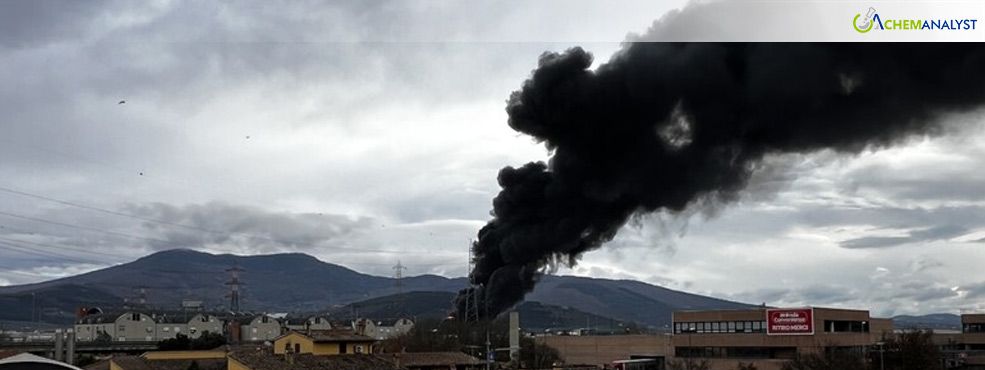Welcome To ChemAnalyst

The devastating explosion at the Eni gas refinery in Calenzano, near Florence, on December 9, 2024, has not only caused tragic loss of life and injuries but also raised concerns about its impact on the chemical industry, both locally and nationally.
Impact on the Chemical Industry:
1. Damage to Infrastructure: The explosion has heavily damaged the refinery's fuel depot, a key site in the energy and chemical supply chain. While Eni confirmed that the fire was contained to a loading area and did not affect the tank farm, the blast still represents a significant disruption to operations. A major incident like this could result in the temporary or permanent closure of parts of the facility, impacting the chemical production that depends on the supply of energy and raw materials from this refinery.
2. Business Continuity and Supply Chain Disruptions: Eni's refinery is an important player in Italy's energy sector, and the explosion is likely to cause short- and long-term supply disruptions. Chemical industries that rely on refined products, including fuel, solvents, and other chemicals derived from gas and oil, may face delays in supply. This disruption could trigger price hikes and create shortages in the marketplace. Additionally, production halts or slowdowns at other facilities might occur due to limited energy access.
3. Environmental Risks: The Environmental Protection Agency (EPA) was immediately deployed to assess potential environmental damage. While the fire did not affect the tank farm, any further risk of leaks or contamination—especially in water sources—could have significant environmental and regulatory consequences. The chemical industry, already facing increasing environmental scrutiny, could experience heightened oversight and stricter regulations in the aftermath of this explosion.
4. Health and Safety Concerns: The explosion and subsequent injuries highlight ongoing safety concerns in the chemical and energy sectors. With a refinery and chemical facility being such high-risk environments, the incident serves as a stark reminder of the need for strict safety protocols. The loss of two lives, injuries, and ongoing search operations point to potential gaps in safety practices that the chemical industry may have to address through enhanced regulations, oversight, and possibly reevaluation of safety measures across similar facilities.
5. Psychological and Public Trust Impact: The blast, along with the extensive media coverage and the resulting fatalities, could erode public confidence in the chemical industry, particularly in terms of handling hazardous materials and managing high-risk operations. The industry may face pressure from both the public and government to improve transparency and safety measures. This could lead to more stringent regulations on chemical plants and refineries to ensure such a tragedy does not happen again.
6. Regulatory Scrutiny and Response: The tragedy may prompt the Italian government, as well as the European Union, to reevaluate safety standards within the chemical and energy sectors. This could lead to new policies or revisions to existing regulations aimed at improving safety and preventing similar accidents in the future. Eni, along with other energy and chemical companies, may face increased audits and inspections.
7. Reputation Damage to Eni: Eni, as one of Italy's largest energy companies, is likely to face reputational damage due to this incident. As the cause of the explosion is still being investigated, the company's handling of the aftermath, including transparency, support for victims' families, and coordination with authorities, will be crucial in maintaining its standing in the industry. The company may also face legal and financial repercussions, especially if it is found that inadequate safety measures were in place.
The explosion at the Eni refinery in Calenzano has had significant ramifications not only in terms of human tragedy but also within the broader context of the chemical and energy industries. Supply chain disruptions, environmental risks, and increased scrutiny of safety practices will likely lead to changes within the sector. The incident underscores the critical importance of stringent safety measures, robust emergency response protocols, and industry-wide efforts to prevent such catastrophes in the future.
We use cookies to deliver the best possible experience on our website. To learn more, visit our Privacy Policy. By continuing to use this site or by closing this box, you consent to our use of cookies. More info.
